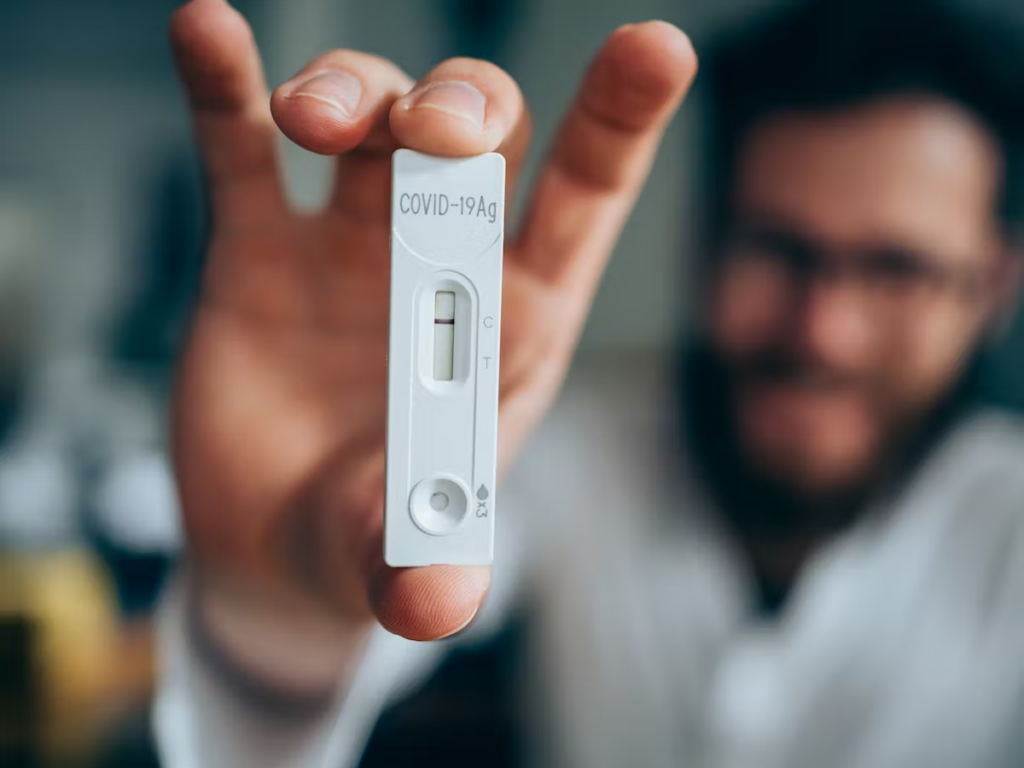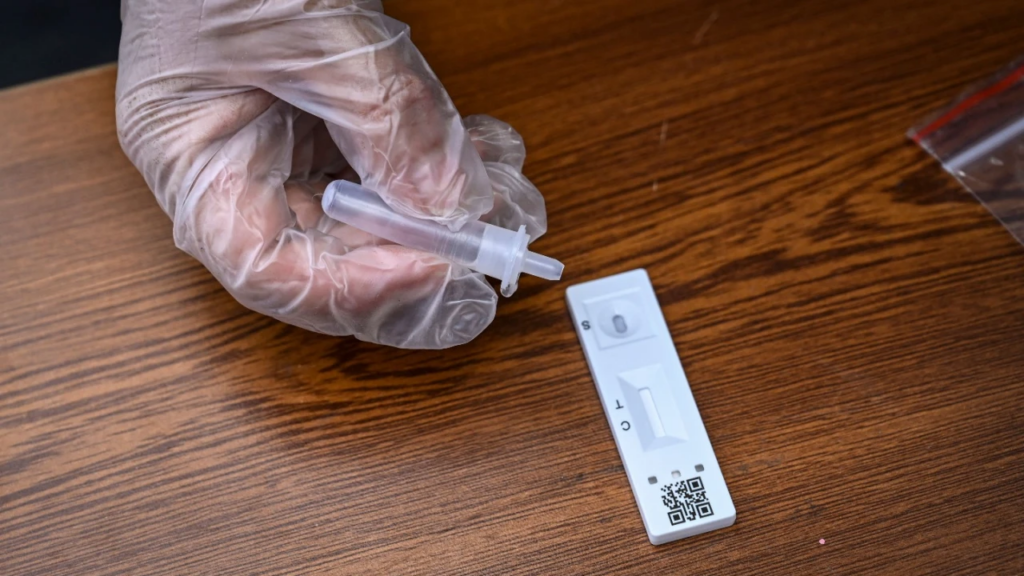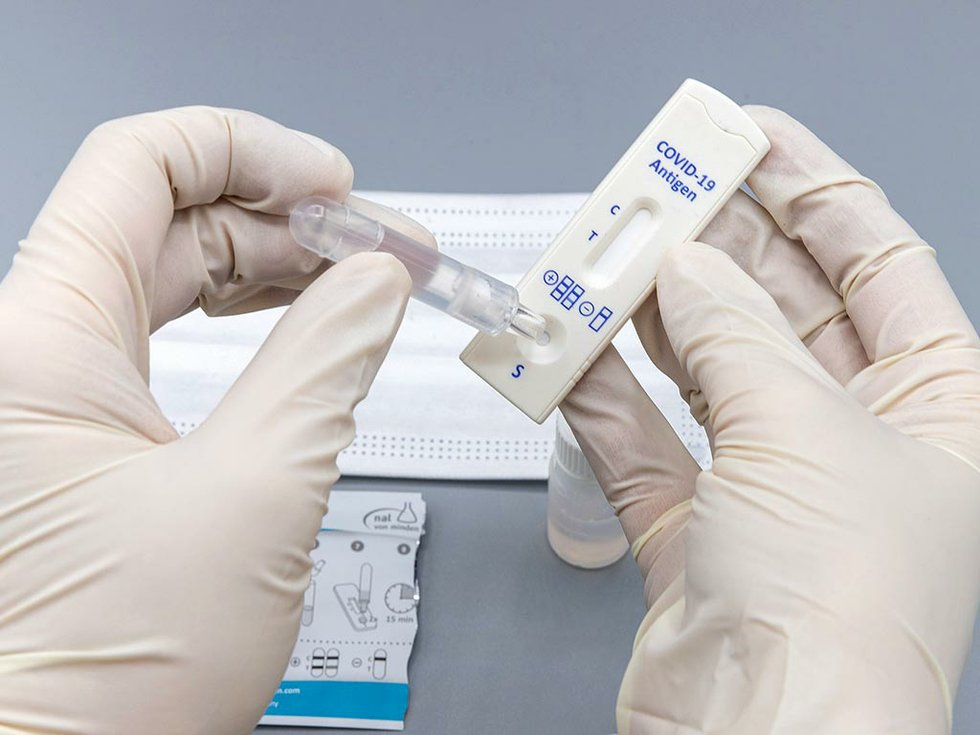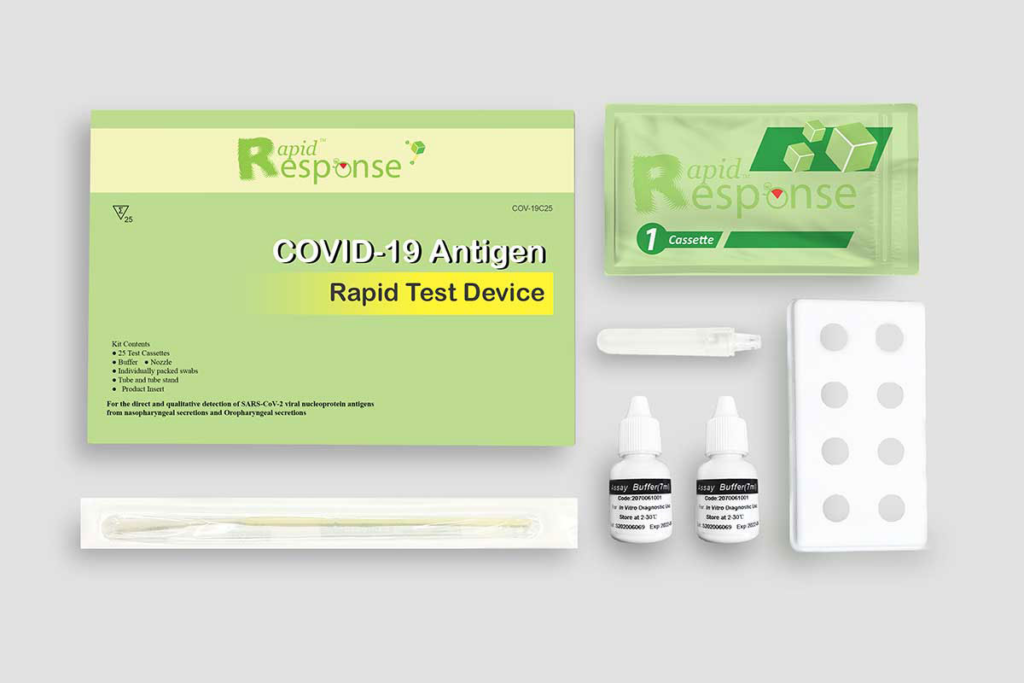There are a few key factors you should watch out for when utilizing rapid antigen tests to screen for COVID-19. These topics will be discussed in the sentences that follow.

Results Rapidity
The timeliness of the findings when comparing COVID-19 test kits is a significant decision element. Sanjeev Jain, MD, PhD, a board-certified allergy and immunologist, claims that since PCR tests must be sent by mail to a lab in order to analyze a gathered sample, it may take several days for them to let you know if the results are positive or negative.
This may be OK if you are preparing to travel, working from home, or isolating yourself due to potential exposure, but it is not acceptable if you were exposed many days ago and need to find out as soon as possible if you are sick.

According to Dr. Jain, an antigen test might be the best choice if urgent results are required since it produces results in only 10 to 15 minutes.
Types of tests
Rapid antigen tests and PCR tests are the two main categories of at-home COVID-19 rapid antigen test on the market.
A diagnostic test that looks for particular viral proteins is known as an antigen test.
Since rapid antigen tests may provide findings rapidly as a consequence, they are often employed for short testing.
But when there is a significant viral load present, these rapid antigen tests are the most precise. As a consequence, individuals with COVID-19 who only have a low viral load at the time of the test run the risk of getting a false negative.
Having said that, they might be a helpful initial step to take to stop the sickness from spreading if you are aware that you have been exposed to the virus.

Molecular: A molecular test can determine if you currently have a COVID-19 infection, just as an antigen test does. A molecular test is diagnostic for finding “genetic material from the virus,” specifically. 18
You may be confident that molecular rapid antigen tests are more accurate than antigen testing, despite the fact that they take longer than rapid antigen tests owing to lab processing—up to seven days depending on your location. Because of the test’s “excellent sensitivity,” few false negative findings occur. 19 If you can wait a little longer for results and prioritize test accuracy, this sort of test is appropriate for you. You can also read about Guidance for Antigen Testing for SARS-CoV-2 for Healthcare Providers Testing Individuals in the Community by clicking here.
An example of a molecular test is a polymerase chain reaction (PCR) test. It is “a diagnostic test that finds viral genetic material.” 18 The viral genetic material is amplified during PCR testing, increasing its sensitivity and likelihood of accuracy. However, the additional amplification phase necessitates laboratory testing, which prolongs the processing of the data.
If you have recently been exposed to the virus but are not exhibiting any symptoms, a PCR test can be a smart choice, according to Dr. Jain. He continues by saying that although antigen testing provides speedier answers, a positive test result necessitates a higher level of viral presence in the body. “Antibody testing are a reliable method to diagnose COVID-19 in symptomatic individuals.”
Precision and Recalls
It’s important to note that certain COVID-19 at-home rapid antigen tests have been recalled due to false positives or false negatives. We are keeping a close eye on the product recalls in this category and will update this page as soon as necessary.
A COVID-19 test sample may be obtained in one of three ways: through nose swab, oral swab, or saliva “spit tube.” Before selecting a test, you should consider the user—children, for instance, could be more receptive to a spit test than a nose swab—but it’s crucial to understand that not all data gathering techniques are made equal.
The best-practice standard for COVID-19 testing, according to Dr. Jain, is the use of saliva and nasal tests since they are more effective at identifying the virus than throat swabs.

In fact, a 2021 research found that nose and saliva samples were equally sensitive to the virus throughout a range of sickness phases.
FDA Authorization for Emergency Use
A test may not be a wise investment just because it is available at your neighborhood pharmacy. You need to choose one that has been approved by the FDA if it hasn’t. Only rapid antigen tests that have received FDA emergency use authorization are included in our compilation.
Utilizing a test that has FDA permission assures that it complies with performance and quality control criteria, according to Dr. Morris, who also maintains a list of permitted rapid antigen tests. “Many pharmacies offer approved gadgets, and most of them are not expensive. Be wary of generic or very inexpensive rapid antigen tests, particularly if they lack instructions.
FDA Issues a Warning Regarding Fake COVID-19 Home Test Kits
As they are not approved by the FDA, you should be careful of fake at-home over-the-counter (OTC) COVID-19 diagnostic tests. These tests shouldn’t be utilized or shared since they might enhance the likelihood of receiving incorrect results.
How do COVID-19 examinations take at home work?
The two primary categories of at-home PCR and antigen testing for COVID-19. You may choose to prioritize one over the other depending on your health objectives.
Dr. Sanjeev Jain adds that a home PCR test, or polymerase chain reaction, “obtains saliva or a sample of cells from the nasal passages, which is shipped back to a lab to be checked for COVID-19 DNA.” “The test would be declared positive if COVID-19 DNA was identified inside the sample, while the test would be regarded negative if no DNA was detected.”
The rapid antigen tests, however, which are totally done at home, employ a different metric to ascertain the presence of the virus since DNA testing must be done in a lab.
According to Dr. Jain, “[Rapid antigen tests] are distinct in that they look for antigens, which are a particular kind of protein present on the COVID-19 virus. The COVID-19 antigen assays may very instantly provide findings for at-home use by indicating whether or not the COVID-19 virus’s proteins are present in the sample.
Are COVID-19 at-home testing reliable?
Can you trust the results of testing samples of your own body fluids for COVID-19 if you are not a healthcare professional? Unexpectedly, yes—but with a few restrictions.
According to Dr. Sanjeev Jain, “[the accuracy of PCR and antigen] testing may be influenced by the time of the test and the quality of the material taken, but the ability to identify COVID-19 in a self-collected sample is quite equivalent to a sample collected by a healthcare practitioner.
In other words, even if a doctor takes the sample, a fast test conducted on an asymptomatic individual is less likely to result in a positive result than a PCR test. The person collecting the sample has less of an influence than the exposure timeframe or your symptom profile.
For the most accurate results when doing an antigen test, you may need to test once and then wait a few days (during which time your viral load could be greater). If you have symptoms following the first antigen test, this could be required. Visit http://eindustrynews.com/how-to-perform-a-nasal-swab-for-your-rapid-antigen-tests/ to read about How to perform a nasal swab for your rapid antigen tests.
